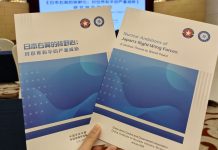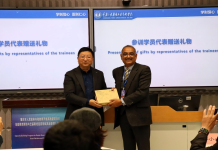BEIJING: As the new semester started on September 1, Liu Jing, mother of a primary school pupil in Beijing, heaved a sigh of relief since her kid can now arrive at school at 8:20 a.m. on a weekday, about half an hour later than before.
“Although it’s only half an hour later, it allows us to have breakfast and get ready for school in a more leisurely manner,” Liu told Beijing Review.
The change comes courtesy of a new guideline issued by the central authorities in late July to further reduce the excessive burden from homework and after-school tutoring for primary and middle school students within three years, also known as the “double reduction” policy.
In spite of previous government efforts to reduce academic pressure on students, the burden remains heavy. On the one hand, students still have to do a lot of homework; on the other hand, they have to take courses offered by after-school training institutions, whose content is often far more advanced than that in the school curriculum.
Furthermore, many of the tutoring companies charge unreasonably high fees and parents have had a hard time getting refunds—if any—following the closing down of some off-campus schools. Cases of institutions running off with the parents’ hard-earned money occur from time to time.
All these problems have offset the country’s previous education reform efforts and caused public discontent.
Reining in a wild industry
One important aspect of the policy is the regulation of after-school training institutions. It bans local authorities from approving any new tutoring institutions for academic course training.
All existing curriculum-based tutoring institutions are required to register as non-profit organizations and are prohibited from going public. What’s more, listed companies are barred from investing in such institutions.
They are not allowed to teach subjects or content too much ahead of the school curriculum and cannot offer training on weekends, national holidays or in winter and summer vacations.
The new policy is currently in its pilot stage across nine cities, including Beijing, Shanghai and Guangzhou, before being rolled out nationwide in the future.
According to statistics from the Ministry of Education (MOE), there were 400,000 after-school training institutions in China in 2018, almost twice the number of schools for compulsory education at that time.
– The Daily Mail-Beijing Review News exchange item






